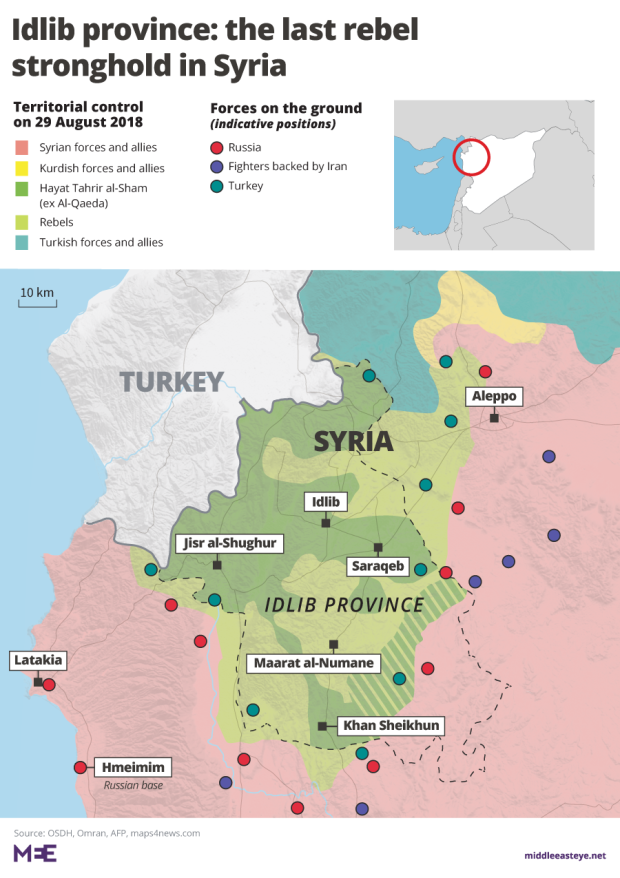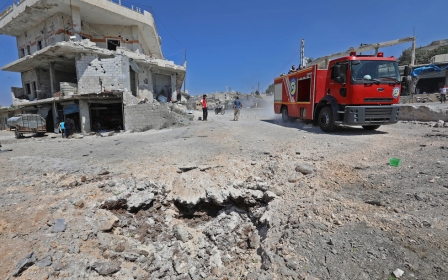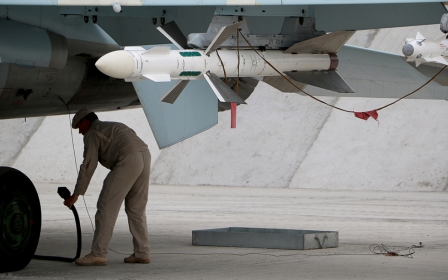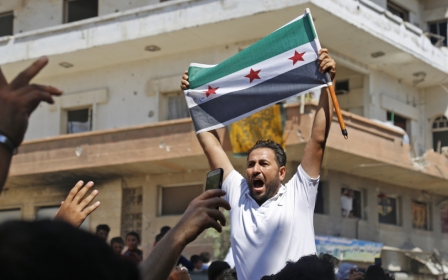Battle for Idlib: Syrian army helicopters are dropping barrel bombs
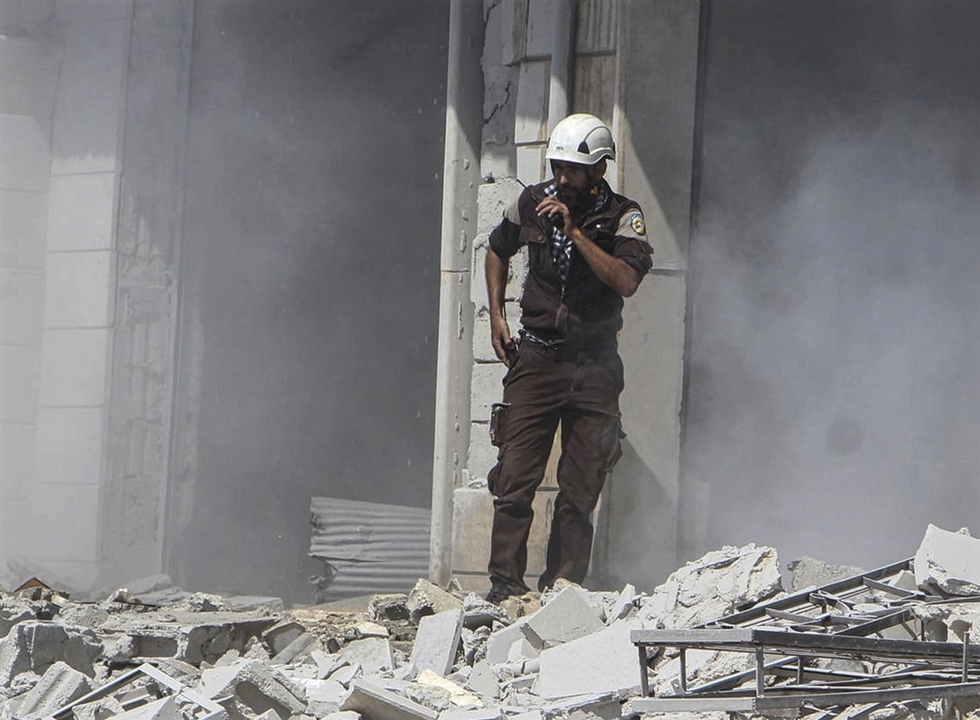
Russian and Syrian jets have resumed intensive strikes in Idlib and Hama for a second day, killing at least two children, residents and rescuers have said.
Damascus stepped up its assault on the rebels' last major stronghold after a summit attended by Russia, Turkey and Iran failed to agree a ceasefire on Friday.
Sources said Syrian army helicopters on Sunday dropped barrel bombs, typically filled with high explosives and shrapnel, on al-Habeet and Abdin villages in southern Idlib and a string of other hamlets and villages in the area.
The Syrian Observatory for Human Rights, a UK-based activist group, confirmed that heavy attacks resumed on the northwestern region near the Turkish border around midday on Sunday.
"Regime helicopters dropped more than 60 barrel bombs on the village of al-Habeet," Observatory head Rami Abdel Rahman said. The raids killed at least two children and wounded six other people, he said.
The Syrian army denies using barrel bombs. However, United Nations investigators have extensively documented their use by the army.
The Observatory also reported on its Arabic-language site that explosions had taken place in the towns of Salqin and Dana north of Idlib city, without reporting any casualties.
Meanwhile, Russian jets were believed to have hit the nearby towns of Latamneh and Kafr Zeita in northern Hama in a succession of raids, the Observatory and a rebel source told the Reuters news agency.
The raids reportedly wounded five rebels in Latamneh and knocked the village's underground hospital out of action, just a day after strikes damaged a similar health facility in Idlib's southern town of Hass, the Observatory said.
"It is distressing to see a rise in attacks on medical facilities ... There are over three million civilians in this crowded area of Syria who are in a life-threatening situation," Ghanem Tayara, head of the US-based Union of Medical Care and Relief Organisations (UOSSM) said in a statement.
Damascus, backed by allies Russia and Iran, has been preparing a major assault to recover Idlib and adjacent areas of the northwest.
The province is Syria’s last major stronghold of active opposition to the rule of President Bashar al-Assad.
Russian and Syrian warplanes resumed their bombing campaign on Saturday, a day after the summit of the presidents of Turkey, Iran and Russia on Friday failed to agree on a ceasefire that would forestall the offensive.
"We've had non-stop air raids since the morning," Abu Hussein, originally a resident of Hama province to the south before he found refuge near Abdin, told the AFP news agency on Saturday.
"Barrel bombs dropped by helicopters crashed close to us," he added.
The raids prompted hundreds of families to take to the roads, as dozens of cars and trucks tried to ferry civilians away from the bombardment.
The United Nations also said it feared a full-scale offensive could cause a humanitarian catastrophe involving tens of thousands of civilians.
So far the aerial strikes have not hit a major city in the province, where many of the three million civilians are displaced from other areas and have found refuge in the course of the conflict.
More than half of Idlib is held by Hayat Tahrir al-Sham (HTS), an alliance led by Syria's former al-Qaeda affiliate, while most of the rest is held by rival rebels. Pro-government forces control a southeastern chunk.
HTS and rebels are also present in adjacent areas of the neighbouring provinces of Aleppo, Hama and Latakia.
Russia says it avoids civilians and only targets al-Qaeda-inspired groups but opposition sources and residents say most of the casualties in the past few days were civilians.
Pro-Assad troops have for weeks been massing around Idlib, after Assad's forces retook control of other areas of the country earlier this year.
More than 350,000 people have been killed and millions displaced since Syria's civil war started in 2011 with the brutal repression of anti-Assad protests.
Middle East Eye propose une couverture et une analyse indépendantes et incomparables du Moyen-Orient, de l’Afrique du Nord et d’autres régions du monde. Pour en savoir plus sur la reprise de ce contenu et les frais qui s’appliquent, veuillez remplir ce formulaire [en anglais]. Pour en savoir plus sur MEE, cliquez ici [en anglais].


